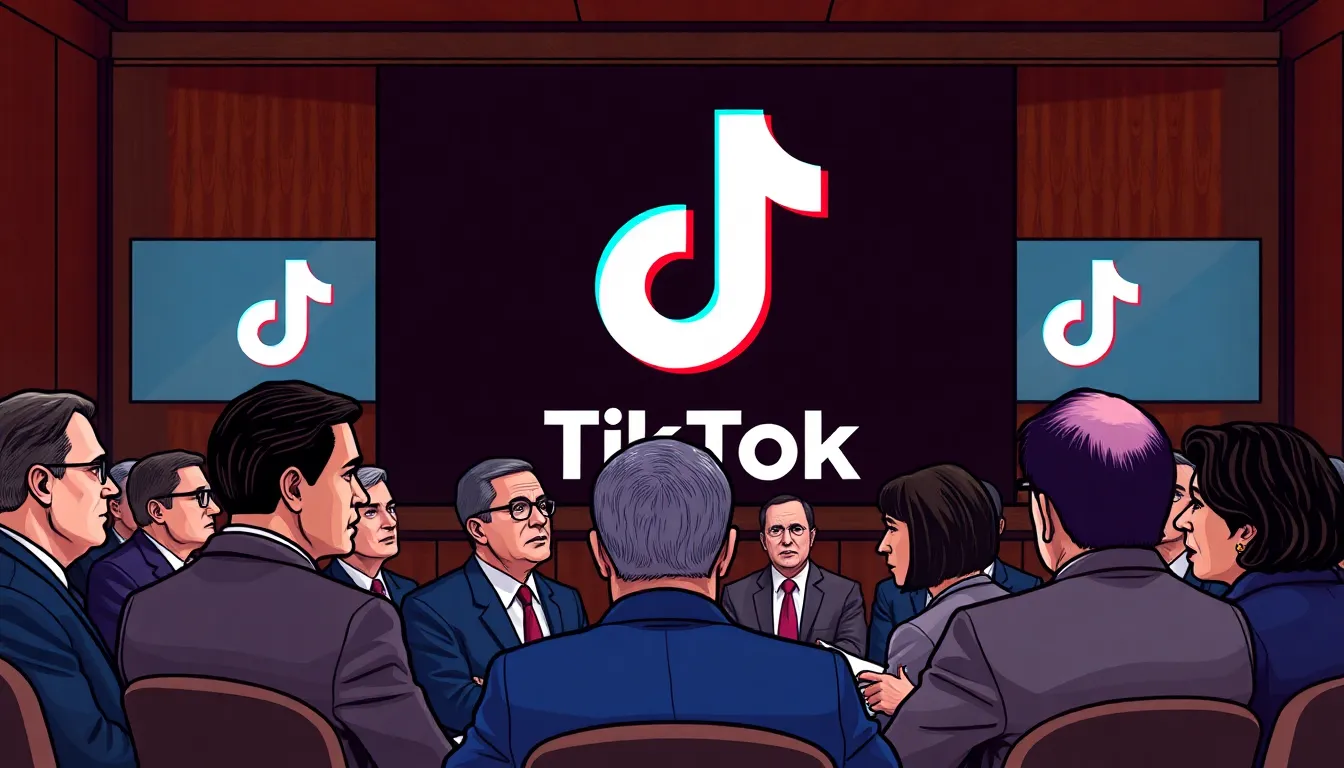As TikTok continues to dance its way into the hearts of millions, the question on everyone’s lips is: when’s the next TikTok ban? It’s like waiting for your favorite reality show to reveal the next shocking twist—except this time, the stakes are higher than a viral cat video. With governments around the globe keeping a watchful eye, the app’s fate hangs in the balance, and users are left wondering if their next scroll might be their last.
Table of Contents
ToggleOverview of TikTok Ban Discussions
The potential restrictions on TikTok continue to spark debates. Users express growing unease, and governments monitor the app’s activities closely.
Background on Previous Bans
Previous TikTok bans primarily occurred in India and the United States. In June 2020, India’s government banned TikTok along with 58 other Chinese apps due to security concerns. The U.S. faced similar considerations, with President Trump attempting to ban the app, citing national security risks in 2020. Legal challenges delayed these efforts, creating a climate of uncertainty. Countries including Indonesia and Pakistan also imposed short-term bans over inappropriate content and data privacy issues, showcasing the app’s controversial standing.
Reasons Behind the Controversy
Security concerns dominate discussions surrounding TikTok’s potential ban. Critics argue that the app could allow the Chinese government access to user data, raising national security threats. Allegations of data misuse, particularly regarding minors, intensify these concerns. Additionally, regulatory scrutiny focuses on content moderation practices, prompting fears of inappropriate content and misinformation. Economic factors also contribute to the discourse, with lawmakers worried about the app’s impact on local businesses and advertising revenues.
Current Legislative Landscape

The legislative environment surrounding TikTok continues to evolve, with key factors influencing its future. Regulatory bodies around the globe focus on potential risks associated with the app, sparking heightened scrutiny.
Key Players in the Decision-Making Process
U.S. lawmakers such as Senators and members of the House actively shape discussions on TikTok. Stakeholders like technology experts and national security agencies weigh in on security concerns. State governments also consider measures that could impact TikTok’s operations. Advocacy groups emphasize user privacy and data protection, pressing for transparency and accountability. Influencers represent the millions of users who express fears about losing their platform.
Recent Developments in Legislation
Recent events highlight a growing trend toward regulation. The U.S. House of Representatives introduced legislation aimed at addressing national security concerns linked to TikTok. Several states have proposed bills to restrict the app’s usage among minors, citing privacy risks. Globally, countries like the Netherlands and Australia explore similar legislative moves, indicating a worldwide wave of concern. Legal challenges marked the attempts to ban TikTok in the U.S., showcasing the complex interplay of regulations and public sentiment.
Public Response and Reactions
Public sentiment around a potential TikTok ban fluctuates, reflecting deep concern among users and influencers alike.
Users’ Sentiments
Users share a mix of anxiety and frustration regarding the app’s uncertain future. Many express worries about losing a platform that fosters creativity and connection. As government scrutiny intensifies, individuals voice concerns about personal data safety and the potential effects of a ban on their digital communities. For instance, TikTok had 1 billion active users globally as of 2021, illustrating its vast reach. Additionally, some users feel disheartened, citing the app’s role in shaping trends and offering a revenue stream for creators. Online discussions continue to amplify these sentiments, illustrating how much the platform means to them.
Influencer Perspectives
Influencers reflect heightened concern as they consider TikTok’s status. Many rely on the platform for brand partnerships and audience engagement. The uncertainty prompts them to explore alternative platforms while advocating for better data protection measures. Influencers often emphasize the economic consequences of a ban, noting the potential loss of income for content creators. They frequently urge followers to remain engaged and informed about ongoing developments. Collaboration among influencers also emerges, with many joining forces to address the situation together. Regular updates on potential legislation become key focal points for these creators, as they navigate the evolving landscape.
Predictions for Future Actions
The future of TikTok remains uncertain as discussions about potential bans continue. Factors such as government scrutiny and public sentiment play a crucial role in these predictions.
Expert Opinions on Timing
Experts predict that significant actions could occur within the next year. Analysts suggest that lawmakers might target legislation following broader national security evaluations. Many anticipate swift movements should new data breaches arise or if TikTok fails to address existing concerns. Recent comments from cybersecurity professionals indicate urgency, emphasizing that ongoing investigations may prompt quicker decisions. Analysts agree that the momentum for change is building, reinforced by the platform’s growing user base.
Factors That Could Influence a Ban
Multiple factors could influence a future ban on TikTok. Data privacy concerns remain at the forefront, with lawmakers worried about user information potentially reaching foreign governments. Legal challenges in the U.S. also play a pivotal role, as court rulings can either support or hinder enforcement efforts. Public pressure further compounds the situation, with citizens increasingly vocal about data protection needs. Economic ramifications associated with a ban cannot be overlooked either, as the platform generates significant revenue for businesses and creators alike.
The uncertainty surrounding TikTok’s future continues to capture attention. As governments evaluate the app’s potential risks users remain anxious about losing a platform that has become integral to their lives. The stakes are high with millions relying on TikTok for creativity and connection.
Legislative actions and public sentiment will likely shape the timeline of any potential bans. With ongoing scrutiny and the possibility of new regulations emerging the next few months could prove pivotal. As discussions evolve it’s essential for users and creators to stay informed and adapt to the changing landscape. The fate of TikTok may ultimately hinge on how effectively it addresses security concerns while maintaining its vibrant community.




